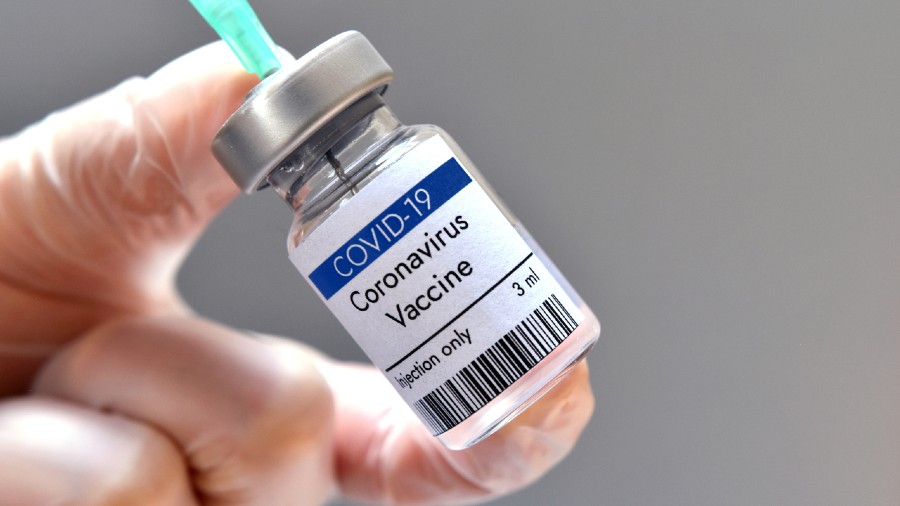A Boston physician said he developed a severe allergic reaction minutes after receiving Moderna’s coronavirus vaccine on Thursday, in the first week of the nationwide rollout for the company’s shots.
The case was the first of its kind reported to be linked to Moderna’s vaccine. Federal agencies are investigating at least six cases involving people who suffered anaphylaxis after receiving the Pfizer-BioNTech vaccine, which contains similar ingredients, during the first few weeks of its distribution in the US.
Officials with the Food and Drug Administration and the Centers for Disease Control and Prevention had discussed the reactions involving some of the Pfizer cases, but have not determined whether an ingredient in the vaccine caused the allergic responses. A few health care workers in Britain had also experienced anaphylaxis after receiving the Pfizer vaccine earlier this month.
The incident on Thursday involved Dr Hossein Sadrzadeh, a geriatric oncologist at Boston Medical Center, who has a severe shellfish allergy and had an appointment to get the Moderna shot in the afternoon. In an interview, Dr Sadrzadeh said he experienced a severe reaction almost immediately after he was inoculated, feeling dizzy and with his heart racing.
In a statement, David Kibbe, a spokesman for Boston Medical Center, confirmed that Dr Sadrzadeh had received Moderna’s vaccine on Thursday. The statement said that Dr Sadrzadeh “felt he was developing an allergic reaction and was allowed to self-administer his personal EpiPen. He was taken to the Emergency Department, evaluated, treated, observed and discharged. He is doing well today”.
Ray Jordan, a spokesman for Moderna, said on Thursday evening that the company could not comment publicly on an individual case. On Friday, Jordan added that the company’s medical safety team would look into the matter, and he referred further questions to officials at Operation Warp Speed, the federal programme overseeing vaccine distribution.
The FDA would not comment on the new report on Friday.
Tom Skinner, a spokesman for the CDC, said that information on reactions to the new vaccines would be posted to the agency’s website starting next week. With more than 1.1 million injections already delivered to arms across the country, severe allergic reactions remain a rarity, and should not prompt concern in most people, said Dr Merin Kuruvilla, an allergist and immunologist at Emory University.
“This should not deter people who are not obviously at increased risk,” she said.
After the initial cases accompanying the Pfizer shots, the CDC issued advice that the Pfizer and Moderna vaccines might not be appropriate for people with a history of anaphylaxis to ingredients in either injection. Anaphylaxis, which typically happens within minutes after exposure to a triggering substance, can impair breathing and cause precipitous drops in blood pressure, potentially becoming life-threatening.
The agency recommended that people with other allergies should still get their shots and wait the standard 15 minutes post-injection before leaving the vaccination site. Anyone who previously had an anaphylactic reaction to a substance, including another vaccine or injectable drug, should be monitored for an extra 15 minutes.
In the case on Thursday, Dr Sadrzadeh said he brought his EpiPen to his vaccine appointment because of his serious allergies. He said that within minutes of the vaccine injection at 3.30pm (local time), his heart rate had spiked to 150 beats per minute, about twice its normal cadence; his tongue prickled and went numb. Before long, he was drenched in a cold sweat and found himself feeling dizzy and faint. His blood pressure also plummeted, he said.
His immune system, he realised, was in revolt.
“It was the same anaphylactic reaction that I experience with shellfish,” Dr Sadrzadeh said.
He used his EpiPen and was taken on a stretcher to the emergency room, where he was given several medications, including steroids and Benadryl, to calm the immune reactions that had overtaken his body.
A record of his visit stated that he had been “seen in the ER for shortness of breath, dizziness, palpitations and numbness after receiving the Covid-19 vaccine”.
Four hours later, Dr. Sadrzadeh was released from care. As of Friday morning, he said he felt fully recovered.
New York Times News Service










